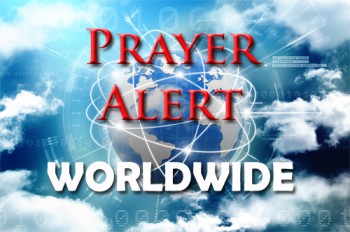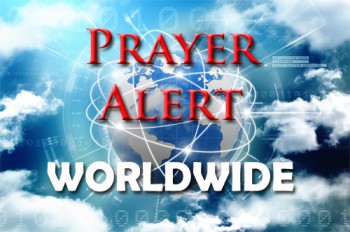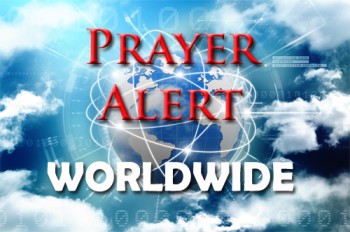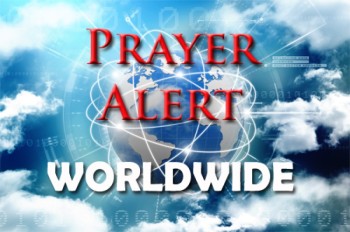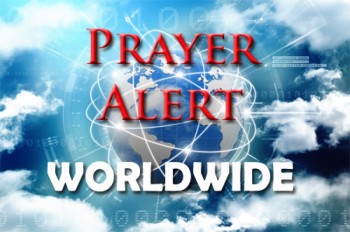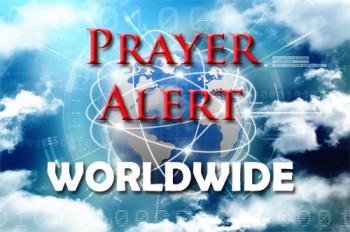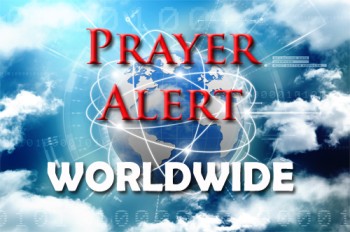Displaying items by tag: Caribbean
Caribbean: pollution from oil leak spreads hundreds of miles
Oil leaking from a capsized barge off Tobago's coast has spread hundreds of miles, reaching the island of Bonaire. It is now regarded as a serious threat to both humans and the environment. The barge, of unknown ownership, ran aground on 7 February, for reasons which are unclear. Investigations suggest it had previously stopped in Venezuela, and possibly was leaking oil from 3 February. Trinidad and Tobago declared a national emergency on 11 February, with ongoing efforts to contain the spill. Satellite images showed the slick extending into Grenada's marine area by 14 February; now the east coast of Bonaire, including vital ecosystems like mangroves, fish, and coral, has been contaminated. There is particular concern for the mangroves, which are among the best preserved in the Caribbean. Despite efforts at containment, oil continues to leak from the barge.
Haiti: Kenyan police to confront gangs
Kenya has pledged to lead a multinational security force in Haiti, responding to a plea from that country’s prime minister. Haiti has suffered from gang violence for decades, but the violence has escalated since the assassination of the president in 2021. Kenya will send a thousand police, aiming to lead a force which will neutralise the armed gangs, protect civilians, and bring about peace, security and order. A number of other countries are expected to contribute security personnel. The force will have to confront armed gangs who control, or regularly terrorise, swathes of the capital Port-au-Prince, and often outgun the local police. Critics doubt the ability of the Kenyan police to take on these gangs in a very different environment, not least because of a language barrier (Haiti is predominantly French-speaking).
Haiti: a failed state?
Haiti has been an epicentre of suffering for many decades. Now the people are being suffocated by dangerous, powerful gangs as the downward spiral into a failed state intensifies. Haiti’s last ten elected senators stepped down in January, so there is no functioning government. There is anarchy as armed and violent gangs rule the streets. Deploying a special international force to Haiti could bring desperately needed respite, but analysts believe that without a long-term political solution any new stabilisation measures have little chance of putting a stop to the carnage. Nearly 25% of the total population of the neighbouring Dominican Republic is made up of Haitian; over two million of them are there illegally. The UN recently called for military intervention in Haiti. Missionary Doug Burbella says there's only one way things will improve. ‘Apart from military intervention from another country, I would say a good, old-fashioned revival would be the only thing that could turn this country around.’
Haiti: Much prayer needed
Since January, there have been no democratically elected officials in power. Gangs control Port-au-Prince, and other areas with violence, kidnappings, extortion, murders and rape. The Church has spiritual plagues, muddling Catholic practices with Vodou (a Haitian witchcraft) and animism (belief that rivers and rocks possess a spirit). For those with no religion, their ‘gods’ are survival and power. Haiti’s evangelical Church is 17% of the population. They work the clinics, hospitals and fly aid to the hungry and homeless, being Jesus’ hands and feet. We can pray for the Lord to show himself in this dark hour to the Haitian people. May God be their rescuer and their strength. Pray for wise, compassionate, and godly leaders within the Haitian government. Pray for the truth of the Gospel to release those in bondage to vodou, witchcraft and animism. Pray for the Haitian Church to embody Jesus' love for the poor and needy.
Haiti: city taken hostage by gangs
In Port-au-Prince your life depends on knowing where the boundaries are. Competing gangs are claiming areas, kidnapping, raping, killing at will and demarcating territories in blood. Cross from one gang's turf to another, and you may not return. Armed groups terrorise 60% of the capital by controlling roads. 1,000 people were killed between January and June. The last head of state was killed in office, creating a vacuum; there is no functioning parliament , and the US-backed unelected prime minister is unpopular. Half the population face acute hunger, 20,000 face famine-like conditions and cholera, but gangs are the greatest plague. Morning and evening rush hours are kidnapping times as commuters are snatched from the streets in a growing industry. Ransoms range from £164 to £820,000. Most victims return if ransoms are paid, but they suffer: rape, burns by melted plastic, and more. Catholicism is the official religion, but voodoo is the national religion. The majority of Haitians practise some aspects of voodoo.
Haiti / Mexico: killing journalists
Fritz Dorilas is the eighth journalist killed this year in Haiti. There is surging gang violence, political instability and targeted attacks on the media. The capital’s increasingly powerful criminal gangs battle for control in a political vacuum after President Moise’s assassination. Haiti has security and humanitarian crises after weeks-long blockades on key petrol terminals caused electricity and water shortages that exacerbated already-high rates of hunger. His killing came shortly after Romelson Vilsaint died during a Port-au-Prince protest when police threw tear gas and opened fire on journalists demanding the release of a colleague. Mexico has been plagued by journalists’ killings since the government’s war on cartels began. It is one of the most dangerous countries in the world to be a journalist: 13 had been killed by the end of August. A web of violence, corruption and impunity has plagued Mexico and despite government efforts to protect journalists, the situation has worsened.
Lebanon & Haiti: Cholera outbreaks
Lebanon is trying to contain cholera in its most vulnerable communities. 290 cases and 11 deaths were confirmed since October 6th. Cholera is a bacterial infection caused by contaminated water or food, it spreads quickly and can kill within hours through severe dehydration. It’s completely preventable with clean water and sanitation access, usually provided by public utilities, but those empowered to deliver this have already made off with the money budgeted for the infrastructure. See Haiti is also grappling with cholera, and the timing couldn’t be worse. The previous outbreak killed nearly 10,000 people between 2010 and 2019. Now, over 1,700 cholera cases have been confirmed, half of them children, and 40 people have died so far. Haiti was already struggling under hostile gang takeovers in cities. A few medical centres try to treat cases, but they lack fuel, gangs blocking the seaport prevent fuel being released, bringing businesses and health facilities to a halt.
Haiti asks for military help to curb chaos
Haiti is in such a bad political, economic and security crisis that the USA has urged its citizens to leave the country. The government authorised prime minister Henry to ask the world for military help to stop gangs paralysing the country and causing a major humanitarian disaster. Powerful gangs have blocked the country's main fuel terminal since September, crippling basic water and food supplies. It is not clear to whom the request for intervention has been sent, and in what form the help would be given. The UN said, ‘We remain extremely concerned about the security situation in Haiti and the impact it is having on the Haitian people and on our ability to do our work, especially in the humanitarian sphere.’ Eight people died recently from cholera, raising concerns of a potential health crisis. Pray for the USA to act on Haiti’s previous request for a humanitarian corridor to restore fuel distribution.
Bahamas: price controls on food staples
Details have been outlined of temporary price control measures aimed at helping families to cope with mounting global inflation. The measures will affect 38 key staples such as eggs, bread, and sanitary towels. Prime minister Philip Davis announced the controls in a national address as part of broader measures to help the island nation, which imports many goods, to tackle the effects of rising price pressures globally. The controls, which limit price increases to 15% for wholesalers and 25% for retailers, will last six months, after which they will be subject to review. The prime minister remains confident that these additional measures will provide relief to Bahamian families. He also said the government would cut profit margins on price-controlled drugs and unveiled a $6 million investment in defence vessels, as they do not have the resources to deal with waves of undocumented migrants.
Haiti: war zone
Haitians are surrounded by gang warfare. One of the largest gangs is 400 Mawozo who kill police officers. Outmanned and outgunned by well-armed gangs, police are demanding that the government back them up with better support and more equipment. The G9 is an alliance of nine gangs led by an ex-policeman. They control coastal ports and oil terminals, seize goods lorries, and extort money from businesses. An estimated 60% of Haiti’s capital is classed as ‘lawless’ by human rights groups. The city, similar in size to Los Angeles, is paralysed by dozens of gangs battling for power and territories. Once buzzing with nightlife, it now looks and feels like a ghost town. Shops are shut and residents have vacated homes, fearing of being caught in the crossfire. On city outskirts, huge swathes of the community are living from hand to mouth, without electricity or access to clean water.
